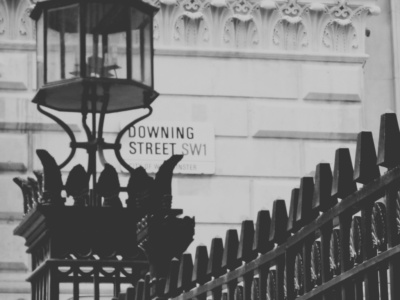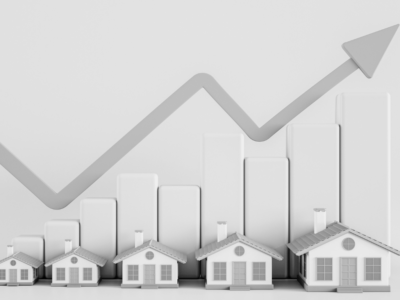- Average UK property price now at record £267,587
- Annual house price inflation up to 7.4%, up from 7.2%
- Wales and Scotland continue to outperform the UK average
Average price: £267,587
Monthly change: +1.7%
Quarterly change: +1.5%
Annual change: +7.4%
Housing activity
HMRC monthly property transactions data for UK home sales increased in August 2021.
UK seasonally adjusted residential transactions in August 2021 were 98,300 – up by 32% from July’s figure of 74,470 (up 28% on a non-seasonally adjusted basis).
The latest quarterly transactions (June-August 2021) were approximately 11% lower than the preceding three months (March 2021-May 2021).
Year on year, transactions were 21% higher than August 2020 (25% higher on a non-seasonally adjusted basis). (Source: HMRC, seasonally-adjusted figures)
The latest Bank of England figures show the number of mortgages approved to finance house purchases fell in August 2021 by 1% to 74,453.
Year-on-year, the August figure was 15% below August 2020. (Source: Bank of England, seasonally-adjusted figures)
The latest results from RICS Residential Market Survey point to a further softening of activity in August 2021.
New buyer enquiries fell for a second consecutive month, with the net balance dipping a little deeper into negative territory at -14% (-9% in July).
Newly agreed sales declined for a third consecutive month, with a net balance of -18% (-22% previously) and new instructions remain in negative territory at -37% (- 45% previously). (Source: Royal Institution of Chartered Surveyors’ (RICS) monthly report)
Russell Galley, Managing Director, Halifax, said:
“UK house prices rose by 1.7% in September, adding more than £4,400 to the value of the average property.
This rate of monthly growth was the strongest since February 2007, pushing year-on-year house price inflation up to 7.4%.
This also reversed the recent three-month downward trend in annual growth, which had peaked at an annual rate of 9.6% in May.
The price of an average house is now as expensive as it has ever been, standing at just over £267,500.
While the end of the stamp duty holiday in England – and a desire amongst homebuyers to close deals at speed – may have played some part in these figures, it’s important to remember that most mortgages agreed in September would not have completed before the tax break expired.
This shows that multiple factors have played a significant role in house price developments during the pandemic.
The ‘race-for-space’ as people changed their preferences and lifestyle choices undoubtedly had a major impact.
Looking at price changes over the past year, prices for flats are up just 6.1%, compared to 8.9% for semi-detached properties and 8.8% for detached.
This translates into cash increases for detached properties of nearly £41,000 compared to just £6,640 for flats.
Against a backdrop of rising pressures on the cost of living and impending increases in taxes, demand might be expected to soften in the months ahead, with some industry measures already indicating lower levels of buyer activity. Nevertheless, low borrowing costs and improving labour market prospects for those already in employment are likely to continue to provide support.
Perhaps the biggest factor in determining the future of house prices remains the limited supply of available properties.
With estate agents reporting a further reduction in the number of houses for sale, this is likely to underpin average prices – though not the recent rate of price growth – into next year.”
Stamp Duty snapshot
In June 2020, the month before the stamp duty (SDLT) holiday began, the typical standardised price for a UK property was £239,317. Therefore a home-mover would have faced SDLT costs of around £2,300.
From July last year, the zero rate introduced on homes valued up to £500,000 (falling to £250,000 between July and September this year as the holiday was tapered out) meant no stamp duty would be payable on that same property.
By September 2021, average house prices were some £28,270 higher – more than 12 times greater than that initial saving.
Today, with the tax break over, home-movers face a bill of nearly £3,400 for the same property, as with an average price of £267,587, they’ve also now been pushed into a higher SDLT bracket (tax rate of 5% applies between £250,000 to £925,000).
Regions and nations house prices
Wales continues to record the strongest house price inflation of any UK region or nation, with annual growth of 11.5% in September (average house price of £194,286). Scotland also continues to outperform the UK national average, with growth of 8.3% (average house price of £188,525).
Note that in both nations, the equivalent stamp duty holidays came to an end at an earlier date.
The South West remains the strongest performing region in England, with annual house price growth of 9.7% (average house price of £276,226).
The weakest performing regions in terms of annual house price inflation are all to be found in the South and East of England, though it should be highlighted that these are also the areas with the highest average house prices. Eastern England has seen annual growth of 7.2% (average house price of £310,664) while in the South East it’s 7% (average house price of £360,795).
Greater London remains the outlier, with annual growth of just 1% (average house price of £510,515), and was again the only region or nation to record a fall in house prices over the latest rolling three-monthly period (-0.1%).
Commenting on the strongest month on month rise in property prices since 2007 according to Halifax, Tom Brown, Managing Director of Real Estate at Ingenious, said:
“Positive economic data, increased job security and employment with wages on the up following the exiting of the successful national furlough scheme have underpinned residential property markets which continue to perform well.
However the market is complicated when we look behind the headline numbers. While many segments continue to grow, city centre flats, for example, don’t always paint the same overall picture of demand which has reduced as people search further afield for more outside space, homes with gardens, practical workspaces and quality infrastructure.
When analysing residential markets, it is key that we take a close look at the subsectors and the regions in which they are located.
It can be misleading to look too broadly and at Ingenious, we remain committed to providing flexible, cost effective financing solutions for our clients by sourcing residential opportunities from across the UK based solely on individual merit.”
Managing Director of Barrows and Forrester, James Forrester, commented:
“Although the second phase of the stamp duty holiday continued to offer a notable saving for a great deal of homebuyers, we simply didn’t see the same mass panic to complete ahead of the deadline that had previously gripped the market.
So it’s unlikely that the buoyant conditions we’re still seeing are solely a result of the holiday itself.
While there will no doubt be some form of erratic price movement on a month to month basis until the market settles down for good, we don’t expect the removal of this tax incentive to significantly impact the market at any level.”
Director of Benham and Reeves, Marc von Grundherr, commented:
“The stamp duty holiday clock has now well and truly expired and those to have seen a last gasp saving would have entered the market many months ago in order to complete in time.
As such, it’s fair to say that the property market is very much standing on its own two feet and so any fears of a market collapse following the stamp duty holiday can now be well and truly put to bed.
Of course, such heightened levels of market activity may inevitably bring a slight cooling in the rate of house price growth, but that’s to be expected.
The London market has been waiting patiently in the shadows watching manic levels of activity play out across the rest of the UK.
The higher price of property has long seen many London homebuyers disregard the importance of the stamp duty holiday, particularly since the price threshold was reduced.
However, we’ve seen a far more natural level of momentum building across the market and this looks set to snowball during the autumn and winter months.
As a result, our money is on London to finish the year with the most impressive performance where house price growth is concerned.”
Founder and CEO of GetAgent.co.uk, Colby Short, commented:
“It’s a relief to have woken up and seen the world still turning post stamp duty holiday having heard many spout predictions of property market Armageddon.
While stamp duty may be a dubious government money grab in the eyes of most, it’s simply not enough to deter our aspirations of homeownership and the market is still in very good health.
The cost of borrowing remains favourable and this will continue to fuel demand while a significant imbalance between this demand and the stock available will ensure house price growth remains buoyant.”
Comment from Ross Counsell, chartered surveyor and director at GoodMove:
“According to Halifax’s latest statistics from August, average house prices in the UK are now the highest on record, standing at a whopping £267,587.
This marks a 1.7% monthly change since August, and shows that house prices are still continually increasing.
And while inflation finally started to drop last month, this month it has risen again, from 7.2% to 7.4%.
Why are these stats still so high?
It’s important to remember that the Stamp Duty holiday came to an end in it’s current format at the end of September, so these figures still reflect people rushing to buy homes before the deadline.
What’s more, most mortgages agreed in September would not have completed before the tax break ended either, so it’s important to take this into account before worrying about these figures released today.
Whilst it is uncertain how the property market will be impacted in the long run, we expect that things will really begin to slow down as we enter the final few months of 2021 and into 2022. With high demand for properties, comes higher house prices, and with less people rushing to meet the deadline we can expect house prices finally starting to drop, which is great news for anyone looking to buy a home, particularly first-time buyers.
What’s in store for the property market going forward?
Of course, we cannot foresee what will happen to the housing market, but we cannot at all expect house prices to increase any higher now the Stamp Duty holiday has officially ended.
The bulk majority of people looking to buy a home will also have done so by now (in part due to the Stamp Duty holiday), meaning that the market for buyer should become less competitive.
For those who may have missed the Stamp Duty holiday originally, it might work out in their favour.
Not only can they now take more time searching and finding a suitable home without the worry of meeting a deadline, but they might find themselves getting a better deal on property prices, especially with the market hopefully becoming less competitive.
Although buyers will have to now pay standard Stamp Duty rates, it’s likely that this will be less than inflated house prices seen over lockdown and throughout this year.
Therefore, we advise any potential buyers to hold off until the new year before making a purchase, in order to allow time for the housing market to stabilise post-stamp duty thus making it easier for buyers to navigate.”






















Comments